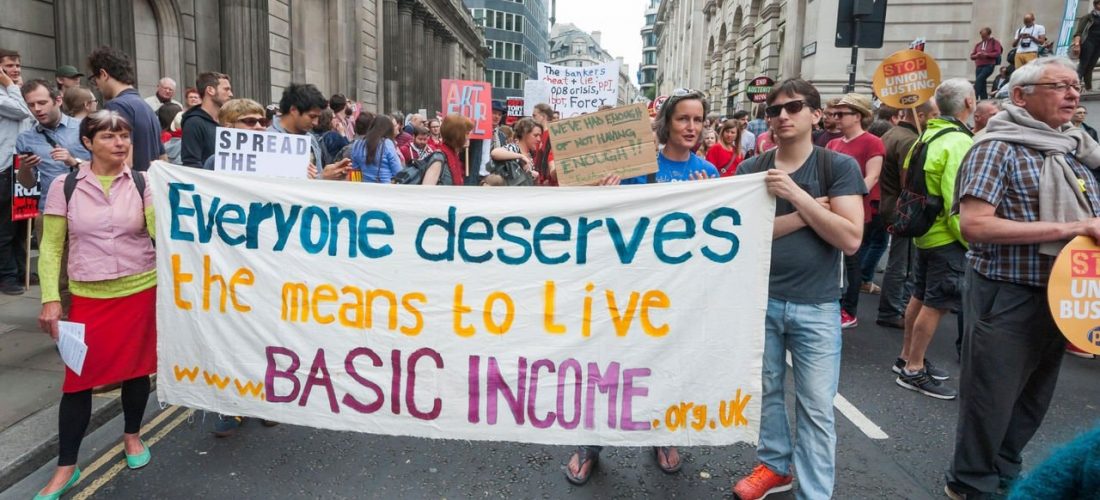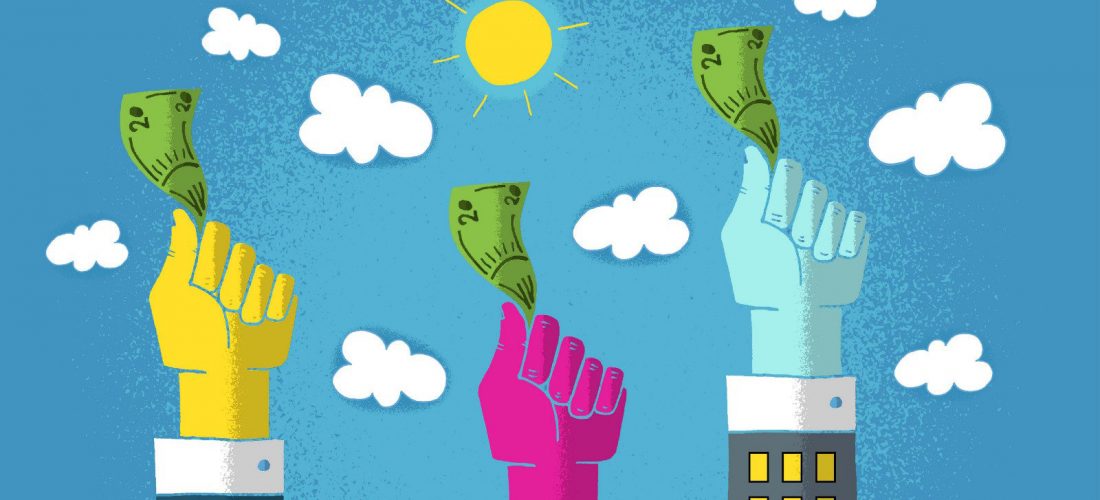Riceviamo e volentieri pubblichiamo. “Uno sguardo filosofico al basic income, tra marxismo ed etica kantiana”. ( In inglese)
Is basic income communism? The short answer is “no.” Communism, by definition, is a system of common ownership, hence the name “communism,” but in basic income there is no system of common ownership assumed.
The problem with communism is that common ownership, meaning “everything is owned by the state,” just doesn’t work. But instituting a system of universal basic income does accomplish much of what Marx had in mind without the problems that arise from a centrally planned economy.
Let’s consider four important ideas in Marxism and how a universal basic income would address those concerns.
1. Common Ownership
Basic income doesn’t involve common ownership in the traditional way that communist countries have pursued an agenda of common ownership. One way to think of common ownership is that the state owns everything and then decides how resources are allocated. This of course doesn’t work. However another model of common ownership is the model used in the corporate sector, the “share mode” where any number of individuals can own a share of a particular corporation and they receive a dividend based upon the income of corporation. In the basic income model each citizen would own a share of all of the economic activity of the country and would receive a dividend in the form of a basic income. So, basic income provides a way to make common ownership feasible. Basic income allows us to realize the this important goal of the communist project while avoiding the problems of a centrally planned economy. It still might make sense to pursue a more direct form of common ownership in certain sectors, like energy, but it is not a required feature of a universal basic income.
2. Classless Society
Marx’s great insight was that the history of the world was the history of class struggle, which there is a certain obvious truth to. He noticed that capitalism had ushered in a new form of class struggle and new forms of oppression. Gone were the monarchies and the oppressions of the aristocrats but in their place had arisen a new class, the bourgeois, and new forms of oppression. According to Marx communism was the ultimate solution to class struggle in which there would be no group with the power and the means to oppress another group. Ending oppression is certainly a noble aim and Marx was certainly correct that capitalism brought with it new forms of oppression that needed to be addressed. What he didn’t realize was that much of his concerns could be addressed within capitalism. Many of his demands, like an end to child labor, universal education for children, a graduated income tax, an inheritance tax, are now common practice throughout the industrialized world.
Would a universal basic income put an end to all class struggle and usher in an age of a classless society? The optimist might be inclined to think that it would, eventually. But even in the short term what a universal basic income would do would be to eliminate the class of persons with absolutely no income. It would eliminate extreme poverty. I am inclined to believe that once you eliminate extreme poverty the vast majority those who are currently poor would end up “middle class.” Extreme poverty is the barrier to becoming middle class. If you have a safety net, a cushion, you can get a education, get job training, start a business, save money, etc. Things that are very very difficult to do when you are poor. So while not producing a purely egalitarian society you would end up with a society without poverty in which the vast majority are “middle class.” But there is also another way in which basic income would move society closer to the ideal of a classless society. Instituting a universal basic income would require raising taxes and raising taxes would pull those currently at the higher ends of the wealth and income distributions, the 1% and .00001%, closer to the middle. So, while you wouldn’t end up with a classless society you would get a society with most everyone middle class and a small portion of people rich but not super rich.
3. Ending Relationships of Dominance
One of Marx’s concerns was the notion of dominance in human relationships and how certain social and economic structures allows classes of persons, and persons in those classes, to oppress and dominate others. If you are poor and you have no other means of survival you have to take a job no matter how terrible it is or how little it pays. In a sense you are free to not take the job but in another very real sense you are not free to not take the job if the alternative is homelessness or starvation. So, by owning something, some asset like a company or a natural resource, you are able to force other people to do your bidding. The terms of the agreement are determined by market value not by what is fair. Marx saw this form of oppression as a very significant problem. Since Marx’s time we’ve instituted minimum wage laws, which worked pretty well at first but haven’t kept up with inflation. So, there are solutions within capitalism to address this concern but a universal basic income would truly put an end to this form of oppression. If everyone were provided an income that was enough to live on no one would be forced into an arrangement in which they didn’t freely choose to be in. The difference in relationship between employee and employer becomes radically transformed. The employer has to offer the employee a fair wage, a wage that actually provides an equivalent amount of value to the work being performed for the employee to have any interest in the job. Unless a person enjoyed the job no one would work for $7.50 an hour. And certainly no one would do demeaning back breaking work for the current minimum wage. An employer would be laughed at, literally, for offering such a paltry sum. The playing field would be equal and a person with more money would no longer be in a position of power to coerce other people into working for less than they wanted to work for. No one would have to work for less than they wanted to work for. Think about that for a few minutes. It is truly an amazing thought. No one would have to work for less than they wanted to work for.
4. Alienation
Another notion that is central to Marxism is the notion of alienation. Frankly I find this to be one of the more murky areas of Marxism, but maybe that is just because I have read enough Marx. That being said I tend to think of alienation as dehumanization. Capitalism has a dehumanizing affect of people. Capitalism essentially assigns a value to each person. Of course not literally, but each person has a market value. The services a person can render have a market value. The market value for unskilled labor is minimum wage, if you are lucky enough to get a job. The market value for doctors is $174,000 – $413,000 per year. This is not a problem if you happen to be a doctor but it is a problem if you happen to be on the low end of the spectrum. Every person feels themselves to be as valuable as every other person, and they are. This is the basic premise of the constitution of the United States and the basic premise most of moral philosophy. Kant specifically contrasts the notion of market value with the moral value that each individual posses. And he says that when we treat persons as things, when objectify them, when we treat them as if they had merely an instrumental or market value and ignore their infinite moral value we transgress the moral law. A universal basic income would end the dehumanizing affect that winner take all capitalism has on those on the lower end of the economic spectrum. Those that either can’t get any job and those who can’t get a well paying job, those whose jobs pay them so little that they can’t afford the basic necessities of life. When we fail to provide the basic necessities to those who can’t earn those necessities in the market place we are essentially saying to them you have no other value than your market value. Because if we valued them beyond their market value would provide them with the basic necessities even if they couldn’t earn them in the market. A basic income would provide income to all persons regardless of their market value. An income simply for existing as a human being. We would be affirming their inherent dignity by providing them an unconditional basic income regardless of their contributions to the market.
Basic income is not communism but rather provides a viable path to realize the basic goals of communism, a form of common ownership, a classless society and an end to the dominance relationships and alienation produced by capitalism.
Tratto da THE SOCRATIC DIABLOGS 24 luglio 2014







